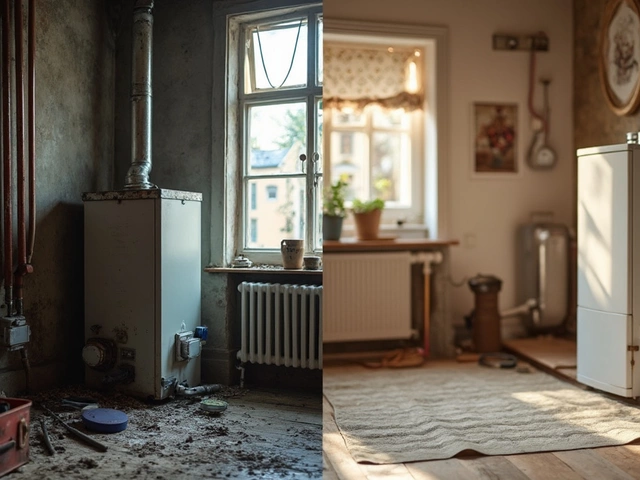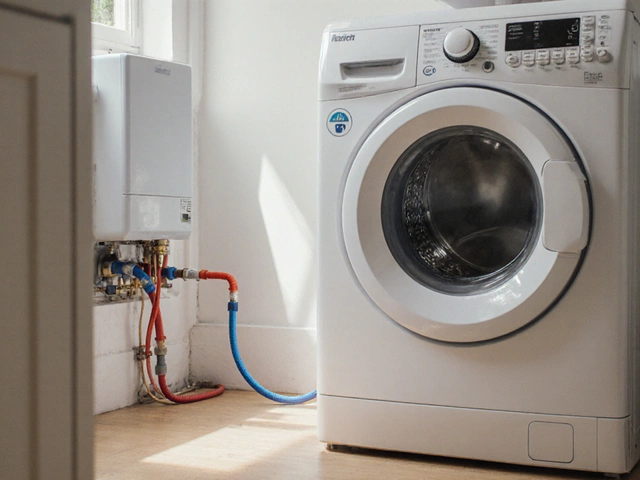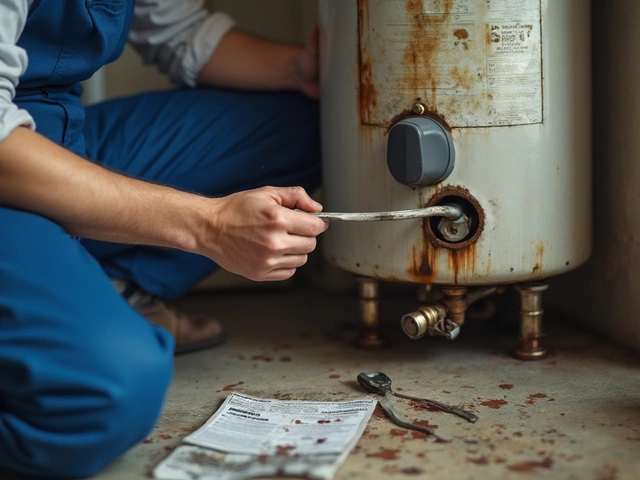Repair or Replace Your Boiler: What's the Best Choice?
April 9 2025Repair vs Replace: Simple Rules for Deciding What to Do with Your Appliance
Got a noisy boiler or a dishwasher that won’t start? Before you rush out to buy a brand‑new unit, ask yourself three quick questions: How old is it, how much will fixing it cost, and how reliably does it work now? Answering these will tell you if a repair makes sense or if it’s time to replace.
Age and Expected Lifespan
Most appliances have a typical lifespan. A gas boiler usually lasts 10‑15 years, a kitchen extractor fan 7‑10 years, and a freezer about 10‑15 years. If your device is past the midpoint of that range, parts start to wear out faster and future breakdowns become more likely. For example, a 12‑year‑old boiler that’s already needed two major fixes is a strong candidate for replacement.
But age alone isn’t the whole story. Good maintenance can push a boiler’s life well beyond 15 years. Regular service by a certified engineer keeps the heat exchanger clean and the safety checks up to date. So, a 14‑year‑old boiler that’s been serviced yearly might still be worth repairing if the fault is minor.
Cost of Repair vs Cost of New
Rule of thumb: if the repair bill is more than 50 % of the price of a comparable new unit, replacement is usually smarter. A broken oven heating element might cost £80 to fix, while a new oven runs about £600 – fixing is the clear win. On the other hand, a cracked gas valve on a boiler can run £350 or more; a new boiler installation can be £2,000‑£3,000, so you need to weigh the long‑term savings on energy bills too.
Don’t forget hidden costs. An old appliance may be less energy‑efficient, meaning higher running costs. Upgrading to a modern, high‑efficiency model can lower your gas or electricity bill by 15‑30 %. When you add those savings over a few years, replacement often pays off faster than you think.
Reliability and Safety
Safety is a non‑negotiable factor. A leaking gas boiler or a faulty water heater can be hazardous. Even if the repair price looks reasonable, a compromised safety system should be replaced outright. The same goes for appliances that cause mould or poor indoor air quality, like a non‑working extractor fan – the health risks outweigh the repair cost.
Reliability matters for daily convenience. If your fridge is making strange noises and the temperature is inconsistent, you’ll be constantly checking food. A repair might get it working for a few months, but you’ll likely face another breakdown soon. In those cases, a new fridge gives you peace of mind.
When to Call a Pro
Any gas‑related work should be handled by a Gas Safe registered engineer. Trying to fix a boiler yourself can void warranties and breach safety regulations. At Bedford Gas Appliance Repair Services we can give you a clear quote, explain the fault, and recommend whether repair or replacement makes the most sense for your home.
If the issue is electrical – like a kitchen extractor fan motor that’s burnt out – a qualified electrician or appliance technician should take a look. DIY fixes are fine for simple things like cleaning a filter, but once you’re dealing with wiring or gas connections, call the experts.
Bottom Line Checklist
- Check the appliance’s age and typical lifespan.
- Get a repair estimate and compare it to the price of a new model.
- Factor in energy efficiency and running costs.
- Consider safety – any gas leak or electrical fault should push you toward replacement.
- Consult a certified professional for an honest assessment.
Following this checklist helps you avoid costly mistakes and keeps your home running smoothly. Whether you end up repairing a dishwasher or installing a brand‑new boiler, the right decision saves you time, money, and worry.
 13 Sep
13 Sep
How to Tell If Your Heat Pump Needs Replacing (Signs, Costs, Repair vs Replace)
Not sure if your heat pump is dying? Learn the telltale signs, repair vs replace rules, real costs, and simple tests to decide with confidence-without wasting money.
Read More...



